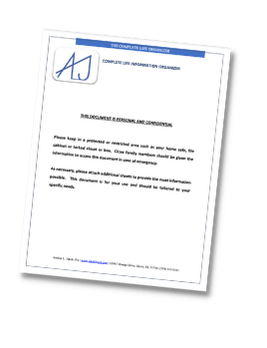If you have lost a loved one in Florida, it’s important to understand how the probate process works. Probate is the legal process of identifying and gathering the assets of a deceased person and then transferring assets to their beneficiaries.
If someone dies intestate, without a will, their things will go to their family based on laws defined by the state of Florida, or if they have a will, that document will define the beneficiaries who will receive the deceased person’s assets.
Some assets within an estate go through probate and some do not, so it’s important to have an experienced Florida probate lawyer on your side to help you through the process in what is likely an already stressful time.
What Assets Go Through Probate?
In Florida, whenever someone passes away, that person’s property immediately becomes property of that person’s “estate.” Florida law has provided that legally, there is never any gap in ownership of any property (land, cars, jewelry, boats, etc.). It does not matter if the person is very wealthy or not: when anyone dies in Florida, automatically, a legal estate is created.
That estate is meant to be temporary, to help change title to deeds and other proofs of ownership, among other things. The process of transitioning the property from the estate to the heirs or beneficiaries that survive the person who has just died is called “probate.”
In Florida, there are specific courts set up just to deal with probate matters. The person who died is in legal terms called a “decedent.”
How Long Does The Probate Process Take?
The type of estate administration (see below) determines how long the probate process takes. This process can vary depending on a number of factors, but we generally see most estates with formal administration completed in about a year, but a complex administration can take months or even years to resolve if disputes or litigation are involved.
Where Is Probate Filed?
If the decedent was a Florida resident, the probate case must be filed in the county where they lived when they were alive. If the decedent was not a Florida resident but owned property in Florida, the probate case should be filed in the county where the decedent owned property, and the court can only transfer property located within the state of Florida.
What Steps Do We Take For Probate?
The first step in the formal administration process is to appoint a personal representative for the estate. The personal representative ensures the transfer of the decedent’s assets as provided for in the estate plan. For more information about the role of the personal representative, take a look at our post on the responsibilities of a personal representative in Florida.
If you are dealing with an estate that has non-exempt assets valued at over $75,000 and the person has passed away in the past two years, you must use the formal administration process; but for assets under $75,000, summary administration may be used.
What Is Exempt Property?
Exempt property in a Florida probate case includes certain assets, the decedent’s primary property, up to two vehicles, household furnishings in descendants’ main residence, up to $20,000 in value. This property passes directly to the decedent’s spouse (if married) and/or children, and should not be used to pay the debts of the estate.
How Can A South Florida Probate Lawyer Help?
Hiring the right probate lawyer can make all the difference in your case. If you have a loved one who has passed recently, we’re here to help. Andrea Jakob and her team have helped families just like yours navigate the probate process. Contact us today to schedule your consultation, or download our free guide on When A Loved One Passes Away.

